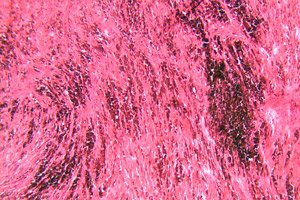
All iLive content is medically reviewed or fact checked to ensure as much factual accuracy as possible.
We have strict sourcing guidelines and only link to reputable media sites, academic research institutions and, whenever possible, medically peer reviewed studies. Note that the numbers in parentheses ([1], [2], etc.) are clickable links to these studies.
If you feel that any of our content is inaccurate, out-of-date, or otherwise questionable, please select it and press Ctrl + Enter.
Scientists have figured out how melanoma avoids the human immune system
Last reviewed: 02.07.2025
 ">
">An international study led by Dr Li Qi-Jing from the Agency for Science, Technology and Research (A*STAR) has identified a mechanism by which melanoma, the most aggressive form of skin cancer, evades the immune system.
Melanoma is notoriously difficult to treat in its late stages. Despite some treatments that have improved outcomes, there is a category of melanomas that remain "cold," meaning they do not respond to current therapies.
The results of a study recently published in the journal Nature Immunology show that human melanomas use nerve growth factor (NGF), a protein important for nerve development, to protect themselves from the body’s immune responses. This sheds light on how these resistant melanomas camouflage themselves from the immune system.
Deciphering Melanoma Evasion Tactics
Using advanced genetic engineering techniques, a team of researchers discovered that NGF and its receptor TrkA create a “cold” tumor environment by altering the behavior of both tumor cells and immune cells. In melanoma cells, NGF and TrkA reduce the production of signals that normally attract immune cells to the tumor site. They also inhibit the activation of immune cells whose job it is to kill cancer cells.
This important discovery not only improves our understanding of how tumours evade the immune system, but also opens up new therapeutic strategies. “The prevalence of the NGF-TrkA signalling pathway in human melanomas provides a predictive marker for treatment response and overall patient outcome,” explained Dr Lee, Distinguished Principal Scientist at the Institute of Molecular and Cellular Biology (IMCB) and the Singapore Immunology Network (SIgN) at A*STAR.

NGF creates an immune-sealed tumor microenvironment in melanoma. Source: Nature Immunology (2024). DOI: 10.1038/s41590-023-01723-7
The study was conducted in collaboration with a global network of researchers and institutions, including Duke University School of Medicine, Shanghai Institute of Nutrition and Health, H. Lee Moffitt Cancer Center and Research Institute, Zhejiang University School of Brain Science and Medicine, and biotechnology companies TCRCure Biopharma and Hervor Therapeutics.
Discovering new ways to treat melanoma
The potential for improving cancer treatments from this research is significant. The study highlights the effectiveness of TrkA inhibitors, such as the FDA-approved larotrectinib, which blocks the activity of the TrkA receptor. These inhibitors counteract the immune-evasive actions of NGF and TrkA, thereby increasing the effectiveness of immunotherapies.
Currently, TrkA inhibitors like larotrectinib are only approved for a small proportion of melanoma patients with certain TrkA mutations. However, new findings suggest that these inhibitors may have much broader applications. By repurposing TrkA inhibitors as immune sensitizers that make cancer cells more vulnerable to the body’s immune response, they could potentially benefit a wider group of melanoma patients, including those without TrkA mutations.
"We are excited about the opportunity this opens up for a wider range of patients who are resistant to immunotherapy," Dr. Lee said.
"Preliminary analysis of melanoma samples from 104 patients at the cancer center
Moffitt showed that 75% of patients had high levels of NGF expression, suggesting that this strategy could benefit the majority of those suffering from this aggressive cancer."
